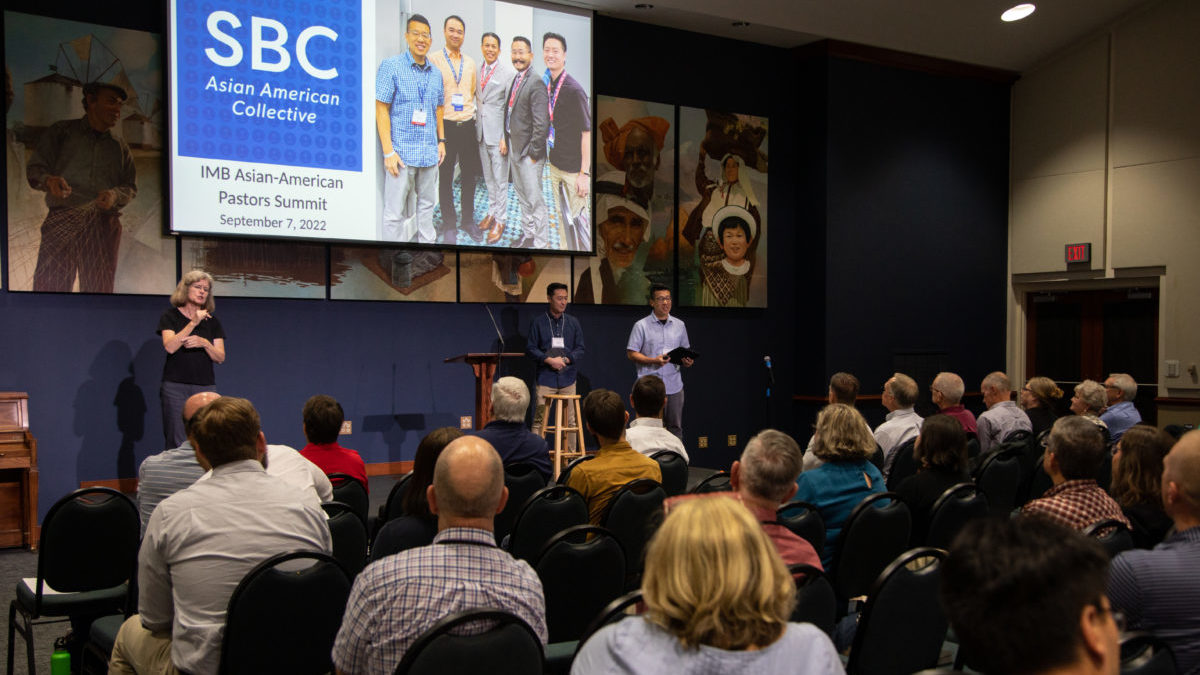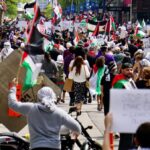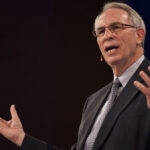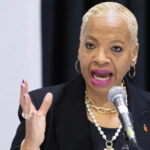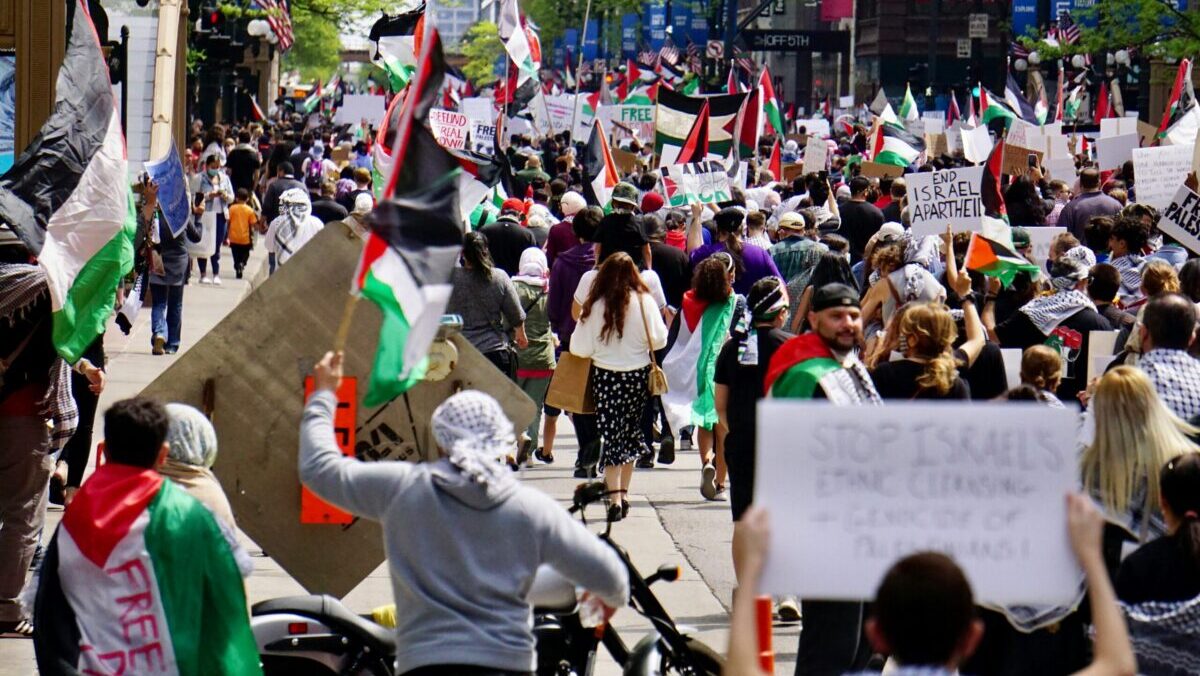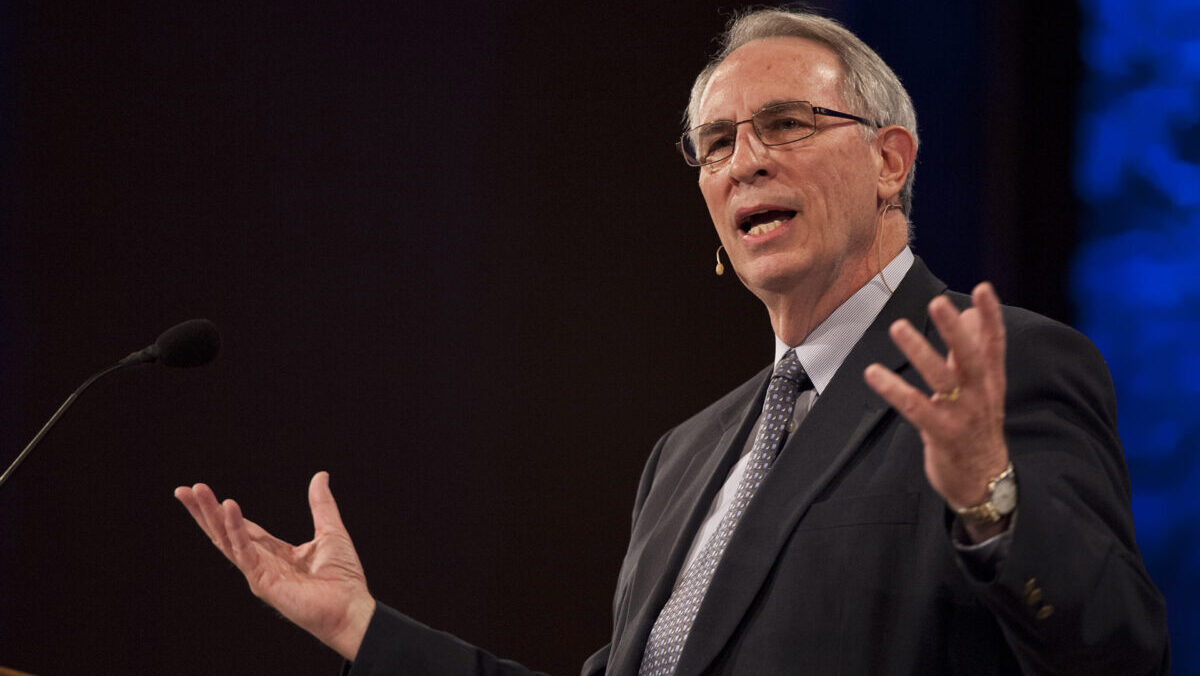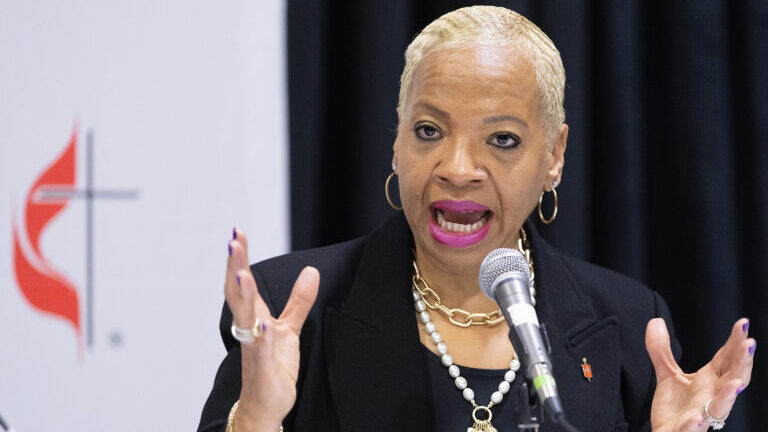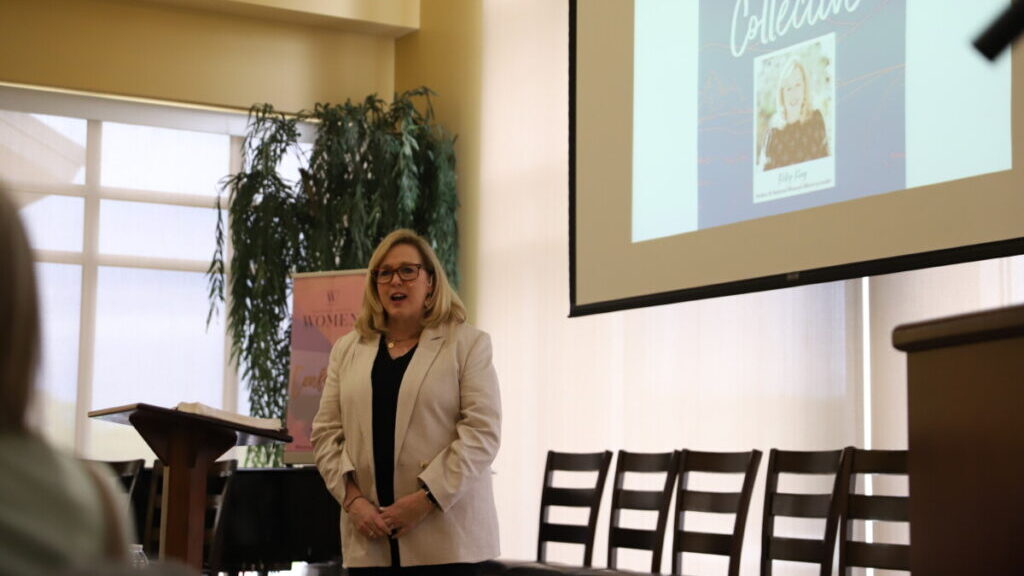Fourteen NextGen Asian American pastors and church leaders recently traveled from churches across the U.S. to the International Mission Board’s headquarters in Richmond, Virginia, for the NextGen Southern Baptist Convention Asian American Pastors’ Summit to meet with IMB senior leadership and departmental leaders and learn about the organization and opportunities for partnership.
The IMB has long-standing relationships with Asian American churches and leaders, but this was the first official meeting between NextGen pastors and the IMB. NextGen refers to second-generation Asian Americans who were born in or moved to the U.S. as children.
The Southern Baptist Convention’s Asian American Collective was the organizing body behind the NextGen summit on Sept. 7. The Asian American Collective formed after Peter Yanes became the executive director of Asian American relations and mobilization for the Southern Baptist Convention. Yanes and the core team of leaders with the Asian American Collective saw a need to build a network, provide opportunities and engage NextGen Asian American pastors in the SBC.
Carter Tan, the business solutions partner for the IMB, said he and other core team members heard NextGen pastors mention a lack of connection to the IMB. Tan and Ezra Bae, the Asian church mobilization strategist for the IMB, planned and coordinated the NextGen pastors’ visit to the IMB. Tan and Bae are both core team members of the Asian American Collective.
Yanes joined the pastors at the IMB facilities who traveled from California, Arizona, Texas, Louisiana, North Carolina, Maryland and Virginia.
Terrence Shay, the family ministry associate pastor for First Chinese Baptist Church Walnut in Walnut, California, is also an Asian American Collective core team member and was one of the NextGen pastors who participated in the summit.
‘Here to build a bridge’
Shay said many NextGen pastors do not have the strong ties that first-generation Asian American pastors have to the IMB.
“I think we need to really make sure that the next generation owns it for themselves — a love for the IMB and for mobilizing and sending and training through the IMB,” Shay said, “so we’re here to build a bridge to hopefully then begin many more seasons of conversation.”
He believes NextGen pastors need to understand and have first-hand experience with the IMB to champion the IMB in their churches and speak with conviction as to why their church members should consider or continue partnering with the IMB.
“We’re pointing out all the ways in which God is faithful through the IMB, and that the IMB is still the greatest mobilizing missionary task force that any church can affiliate with,” Shay said.
The pastors met with IMB leaders across multiple departments to hear about the mission and vision, role in the globalization of missions, opportunities to mobilize their church members to serve short and long-term, pathways to the mission field and how missionaries are cared for on the mission field.
IMB President Paul Chitwood, Todd Lafferty, IMB’s vice president, and other senior leaders spent time fellowshipping with the pastors during lunch. In a question-and-answer panel, the pastors asked questions of Chitwood, Lafferty, John Brady, the IMB’s vice president of Global Engagement, and Charles Clark, the IMB’s vice president of Mobilization.
“We exist to serve Southern Baptists and we want to do that well. Hosting you and being in conversation with you today, and in past conversations we’ve had, and future relationships that we want to steward with you, help us understand how we can do that, what the needs are and how we can serve,” Chitwood told the pastors.
Growing in knowledge and understanding
Shay and Hyung Lee, the pastor of Living Rock Church in Pasadena, California, spoke during the weekly IMB staff chapel service about their vision for mobilizing NextGen leaders.
Lee, also an Asian American Collective core team member, said engaging with and understanding NextGen pastors have far-reaching benefits, and NextGen congregations are steadily growing.
“Most people in the Southern Baptist world think of our parents (Lee’s father is also a pastor) who speak the mother tongue, and they don’t really think about those of us who’ve grown up in the U.S. and went to college in the States and are into college football,” Lee said.
Some NextGen pastors lead English-language congregations in immigrant churches. Others pastor multi-ethnic churches.
Speaking for NextGen leaders he interacts with, Lee said, “If we don’t feel the need [to partner with the IMB] then we will look for other organizations to partner with in the long run.”
Lee said what he is addressing with the younger generation is who the IMB is and why they should keep giving.
“If they don’t feel the sense that it is important, then over time, the church budget, the Cooperative Program giving and Lottie Moon Christmas Offering giving will be smaller,” Lee said.
“Later on, when the next generation has control of the purse strings, if they don’t buy into it, legacy giving is going to die,” Shay added.
Shay’s church gives faithfully to the Cooperative Program and Lottie Moon. He’s fighting the disconnect some churches are seeing, especially on the West Coast.
The goal of the collective is to inform and empower pastors to not just continue to get people to give but to “speak toward and for the IMB and all of its ministries from the pulpit, and to actually push people positively towards IMB involvement,” Shay said.
Reaching the nations, together
One of the IMB’s strategic objectives is to send out 500 more missionaries by 2025.
“If the IMB wants to send out 500 more missionaries by 2025, there needs to be more minority representation, especially from the NextGen Asian American group, not just the first-generation leaders,” Lee said. “Pastors are the best people to promote to the members of their church the benefits of the IMB.”
Lee continued, explaining that this diversity in the missions’ force he speaks of “shows the power of the gospel.”
Shay and Lee shared their appreciation for the IMB’s initiatives to increase Asian-American representation and involvement. Lee said seeing Asian Americans in positions of leadership in the IMB encourages them to share with church members that they have a place with the IMB.
Two and a half years since Bae began his role as Asian church mobilization strategist, the number of IMB Asian American missionaries increased from 220 to 284. Ezra said 80% of the 284 are first-generation Asian Americans. His goal is to increase the percentage of NextGen missionaries.
There are around 2,400 Asian churches in the U.S. Bae said the NextGen pastors can be a bridge to reaching churches that are not involved.
“I pray these Asian young leaders will mobilize more young people from their churches to pray, give and go,” Bae said.
Hosting a specifically second-generation event was significant, NextGen pastor John Lee said, because, in Asian culture, elders are respected and deferred to, so younger leaders would be less likely to ask difficult questions, lead out and take ownership. Having a meeting of second-generation pastors provided equal footing. John Lee is the associate pastor of Bethany Baptist Church in Bellflower, California.
Shay expanded on this, saying, “We’re maybe taking them out of a bubble or hierarchy that they were in that always puts them in that lower place.”
“You guys are the pastors and the leaders in your churches. We are in and connected to this denomination together, so let’s push you guys forward,” Shay tells other pastors.
EDITOR’S NOTE — This story was written by Tessa Sanchez and originally published by the International Mission Board.

